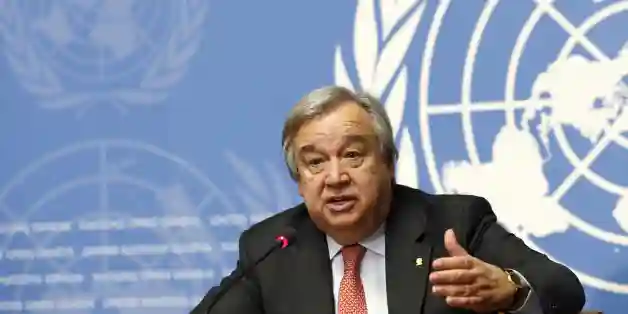UN Secretary-General Antonio Guterres has faced criticism for expressing concern over the dire living conditions that President Mohamed Bazoum and his family are allegedly enduring during their arbitrary detention in Niger.
Guterres also expressed alarm regarding the reported arrests of government members, calling for their unconditional release and the country’s adherence to international human rights obligations. A UN spokesperson said:
The Secretary-General is very concerned over the deplorable living conditions that President Bazoum and his family are reported to be living under as they continue to be arbitrarily detained by members of the Presidential Guard in Niger.
The Secretary-General is also alarmed over continuing reports about the arrest of several members of the government. He urgently calls for their unconditional release and for the strict adherence to Niger’s international human rights obligations.
Political activist and Pan-Africanist Ali Naka, who is purportedly associated with the Rwanda government, argued that President Bazoum’s living conditions should not be a cause for alarm, as they reflect the typical circumstances experienced by the common people of Niger. He said:
86% of the People of Niger don’t have access to electricity, meanwhile, the UN is concerned about whether one individual (Former President) has access to electricity. Pathetic. Our struggles are different!
Since his ousting in a military coup, Bazoum has been held captive at the presidential palace without access to basic necessities or medical care. The Nigerien Party for Democracy and Socialism-Tarayya condemned these conditions, appealing for international intervention to secure Bazoum’s freedom and restore constitutional order. The junta, however, has resisted external pressure to relinquish power.
Living conditions in Niger are challenging due to factors such as poverty, limited access to basic services, food insecurity, and inadequate healthcare. Clean water, electricity, and sanitation facilities are scarce, especially in rural areas. The majority of the population relies on subsistence agriculture, facing recurring droughts and desertification. These factors contribute to high poverty rates and low human development indicators. Several factors such as poverty, food insecurity, limited access to basic services, inadequate healthcare, environmental challenges like drought and desertification, and political instability contribute to these challenging living conditions.

